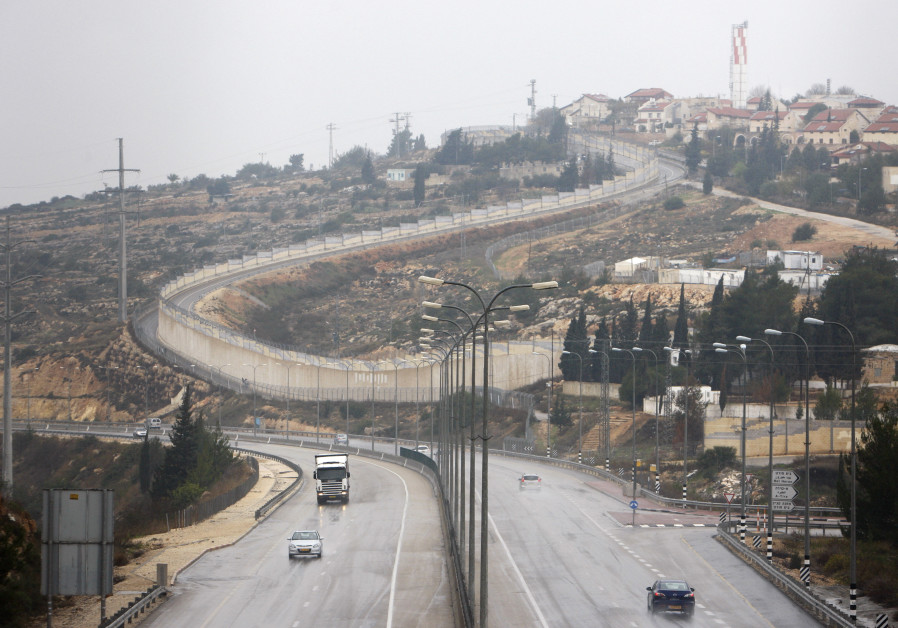The goal of court reform is elimination of the Green Line, Justice Minister Ayelet Shaked said.

In the newest push toward de facto annexation of the West Bank, the Ministerial Committee for Legislation approved a bill on Sunday that would expand the jurisdiction of Israeli courts over Area C of that region.
If passed, the bill would minimize the role of the High Court of Justice with regard to cases involving property rights, building and construction, freedom of information and restraining orders.
Lawsuits against actions taken by Israeli authorities in Area C on these topics would be handled in the same way as cases within sovereign Israel.
The authorities subject to most of the lawsuits in the area are the Civil Administration and the IDF.
Instead of automatic petitions to the High Court, such issues would be adjudicated by the district courts. While the option could still exist to appeal cases to the High Court of Justice or to the Supreme Court, doing so would be limited and much more expensive.
The legislation put forward by Justice Minister Ayelet Shaked (Bayit Yehudi) is designed to reduce the High Court’s caseload and to normalize life for Israeli citizens living in Judea and Samaria, ensuring that there should be no legal difference between them and those living within the Green Line, according to a statement put out by her office.
The statement explained that one of the primary goals here “is the de facto elimination of the Green Line in all matters relating to legal issues.”
“The burden on the Supreme Court is unparalleled to anywhere else in the world,” Shaked said.
“The High Court of Justice handles about 2,000 petitions annually and, as a result, has to dismiss many petitions out of hand,” she said.
She explained that she was redistributing the burden to the lower courts. “Equally important,” Shaked said, “is ending the discrimination against the residents of Judea and Samaria, who must have rights that are equal to any other citizen.”
The legislation now moves to the Knesset where it must pass three readings before it becomes law.
Right-wing politicians have been particularly concerned with the High Court’s rulings with regard to land cases, which they believe tend to favor the side of the Palestinians over the settlers.
Left-wing politicians viewed the move as part of a drive by the Right to apply sovereignty to Area C and to deprive Palestinians living there of rights.
MK Tamar Zandberg (Meretz) charged that Shaked was “endangering democracy” by rushing toward “judicial annexation” of the West Bank “that blurs the Green Line.”
MK Yousef Jabarin (Joint List) said this was yet another initiative by the right-wing government of the settlers to normalize the occupation and to advance “creeping annexation” over the West Bank.
“The High Court of Justice has never treated the Palestinians in the territories justly, but the government is bothered by the little that it has done [for them],” he said, adding that the move will complicate and prolong legal proceedings, leaving the Palestinians with little legal recourse.
The right-wing NGO Regavim, which deals with land issues, said that Shaked’s legislation would stop the High Court from issuing politicized rulings and place the issue of construction in a more neutral factbased venue.
It remains a fact, Regavim said, that “in the last years, the High Court of Justice has issued a long list of final rulings to destroy Jewish buildings and very few such judgments against illegal Arab building.”
The Association for Civil Rights in Israel, which has opposed the legislation, said that the High Court has a unique role and status as part of the Supreme Court of the State of Israel, with the greatest authority, status, and independence.
“It determines rulings that obligate the authorities in the most significant manner. When a need arises to protect a vulnerable population under military rule, it is necessary to bring the matter before a court that possesses the most power to minimize harm and to provide the required protection,” the ACRI said.
It added: “The decisions of the High Court are final and constitute a binding precedent for the authorities, in contrast to the decisions of the district court.”
As reported by The Jerusalem Post
